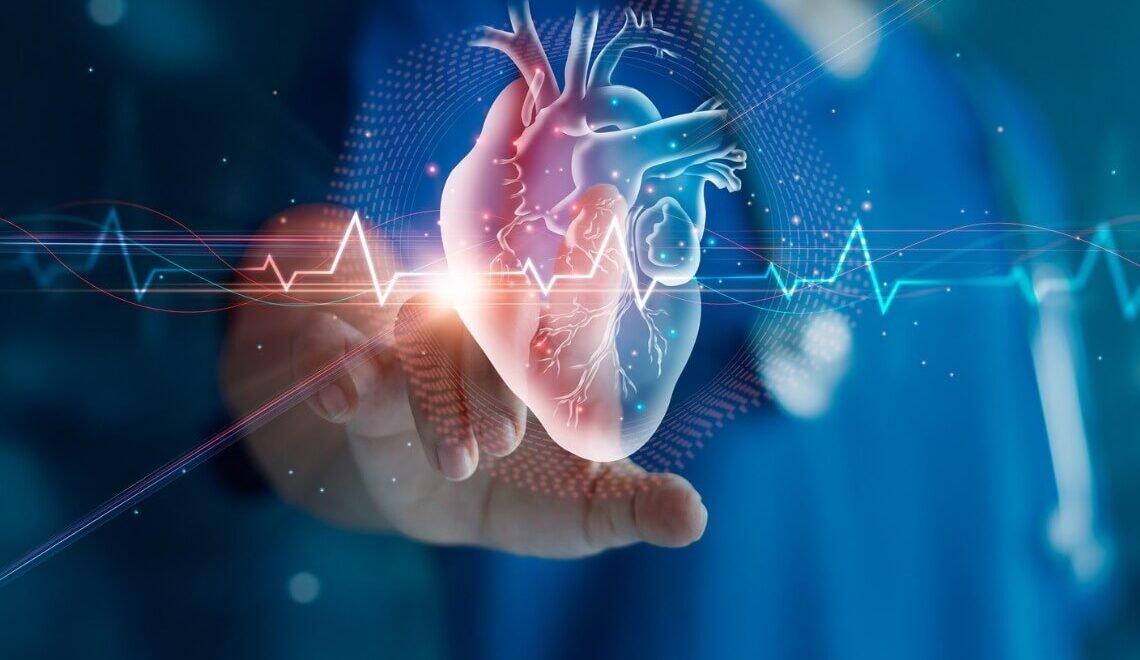
Healthcare is one of the most critical sectors worldwide, with technological advancements playing a pivotal role in reshaping how healthcare services are delivered, accessed, and managed. In India, a country known for its complex healthcare ecosystem that caters to a population of over 1.4 billion, Health Management Systems (HMS) have emerged as a game-changer. These systems use technology to optimize healthcare processes, improve patient care, streamline administration, and ensure better healthcare access, especially in underserved areas. As we move toward a more digital future, HMS is set to redefine healthcare delivery in India in unprecedented ways.
What is Health Management System (HMS)?
A Health Management System (HMS) is a comprehensive platform that integrates the technological needs of healthcare institutions, including hospitals, clinics, and diagnostic centers. HMS encompasses several functionalities, such as patient record management, appointment scheduling, billing, lab management, drug inventory control, and analytics. These systems use various technologies such as cloud computing, Artificial Intelligence (AI), Machine Learning (ML), blockchain, and Internet of Things (IoT) to streamline operations and deliver quality healthcare services.
The Indian Healthcare Landscape
India’s healthcare system is a vast network comprising government and private institutions, and its management has traditionally been plagued by challenges such as:
1. Inadequate Infrastructure: Public healthcare facilities often suffer from overcrowding, insufficient resources, and outdated equipment.
2. Skewed Urban-Rural Divide: While metropolitan cities boast of multi-specialty hospitals, rural areas face a severe lack of quality healthcare services.
3. High Patient Volume: The sheer population density in India often results in overburdened healthcare professionals and administrative staff.
4. Manual Processes: Many healthcare facilities, especially in smaller towns and rural areas, still rely on paper-based systems, which are prone to errors and inefficiencies.
5. Limited Insurance Penetration: Despite government initiatives like Ayushman Bharat, only a fraction of the population has health insurance, making affordability a major concern.
In such a complex ecosystem, HMS is gradually proving to be the cornerstone of the digital transformation in healthcare.
Key Areas of Impact of HMS on Healthcare in India
1. Streamlining Hospital Operations
One of the most immediate benefits of HMS is its ability to streamline operations within hospitals and clinics. From managing patient appointments to coordinating care across departments, HMS provides a centralized system that ensures smooth administrative processes.
– Appointment Scheduling: In India, patients often face long wait times due to poor appointment management. HMS allows for online booking, real-time updates, and queue management, which significantly reduces waiting time and optimizes the use of hospital resources.
– Billing and Insurance Claims: An integrated HMS can automate the billing process, ensuring accuracy and timely generation of bills. This is particularly crucial in India, where discrepancies in billing often lead to patient dissatisfaction. Additionally, HMS systems can help manage insurance claims efficiently, allowing for faster processing and fewer denials.
– Inventory Management: HMS systems can track pharmaceutical inventory in real-time, ensuring that hospitals never run out of essential medications. This is especially important in rural healthcare centers that often struggle with supply shortages.
2. Enhanced Patient Care and Experience
Improving the quality of patient care is at the heart of HMS adoption in India. HMS plays a crucial role in delivering a better patient experience in several ways:
– Electronic Health Records (EHRs): The shift from paper records to digital health records ensures that patient data is easily accessible and up-to-date. In the Indian context, where patients often consult multiple healthcare providers, EHRs enable seamless communication between different facilities and doctors.
– Telemedicine and Remote Care: The introduction of telemedicine platforms powered by HMS is revolutionizing access to healthcare, especially in rural areas. With over 65% of India’s population residing in rural areas, telemedicine, integrated with HMS, is bridging the gap between urban healthcare facilities and rural patients. It allows patients to consult doctors remotely, access diagnostic services, and even receive prescriptions without having to travel to cities.
– Personalized Treatment Plans: HMS systems, especially those using AI and ML, can analyze patient data to recommend personalized treatment plans. This not only improves outcomes but also ensures that patients receive treatment tailored to their specific conditions and medical history.
3. Data-Driven Healthcare and Predictive Analytics
HMS platforms collect vast amounts of data that can be used to drive healthcare decisions. In India, where healthcare data is scattered and unstructured, the use of advanced analytics through HMS can transform how healthcare providers operate.
– Predictive Analytics: By leveraging machine learning algorithms, HMS can predict disease outbreaks, patient inflow, and even identify high-risk patients for chronic diseases like diabetes and hypertension. Early detection allows for better disease management and preventive care, which is essential in a country like India, where healthcare resources are often stretched thin.
– Real-Time Monitoring: IoT-enabled HMS allows real-time monitoring of patients, particularly those with chronic diseases, using wearable devices. Data from these devices can be transmitted to healthcare providers, enabling them to intervene in real-time and provide timely care.
– Population Health Management: With the ability to analyze healthcare data at scale, HMS can be used to manage the health of entire populations. In India, this is particularly relevant for government healthcare programs, where data from HMS can inform policy decisions, identify health trends, and allocate resources more effectively.
4. Improved Accessibility and Affordability
One of the most significant promises of HMS is its ability to make healthcare more accessible and affordable. In a country like India, where a large portion of the population lives below the poverty line, affordability is a major barrier to accessing quality healthcare.
– Cost Reduction: By automating administrative tasks and reducing redundancies, HMS significantly lowers operational costs for hospitals and clinics. These cost savings can be passed on to patients, making healthcare more affordable.
– Mobile Health (mHealth): HMS integrated with mobile platforms allows for widespread access to healthcare services. In India, where mobile phone penetration is high even in rural areas, mHealth solutions are allowing people to book appointments, access health records, and receive care remotely, thus improving accessibility.
– Government Programs and HMS: The Indian government has initiated several healthcare programs such as Ayushman Bharat, which aim to provide affordable healthcare to low-income families. HMS can be integrated into these programs to manage beneficiary data, process claims, and ensure the efficient delivery of services.
5. Telemedicine: Revolutionizing Rural Healthcare
Telemedicine has been one of the most significant advancements facilitated by HMS, particularly in rural India. Telemedicine platforms, powered by robust HMS infrastructure, allow rural patients to consult with specialists in urban centers without the need for travel. This has the potential to drastically reduce the urban-rural healthcare gap.
– AI-Powered Diagnostics: HMS systems equipped with AI-driven diagnostics tools can help healthcare providers in rural areas detect diseases early and provide appropriate treatment. In India, where there is often a shortage of skilled healthcare professionals in rural areas, AI-driven diagnostics can augment local healthcare providers’ capabilities.
– Remote Monitoring and Teleconsultations: Patients in rural areas can now access specialist consultations through telemedicine platforms. The data from these sessions can be integrated into a centralized HMS, ensuring continuity of care even when patients visit different doctors or healthcare facilities.
6. Regulatory Compliance and Security
The growing adoption of HMS in India is also driven by regulatory frameworks that prioritize patient data security and healthcare standards.
– Data Security: As more healthcare facilities transition to digital platforms, data security is becoming a significant concern. HMS solutions often come equipped with security measures like encryption, blockchain, and multi-factor authentication, ensuring that patient data is protected from breaches.
– Compliance with Regulations: India’s healthcare sector is seeing increasing regulation, particularly concerning patient rights and data privacy. HMS platforms help healthcare institutions comply with these regulations by ensuring that all patient data is stored securely and that healthcare providers adhere to established protocols.
7. Medical Training and Workforce Optimization
HMS is also transforming medical education and training in India. Medical professionals can now leverage HMS platforms for continued learning, skill development, and even collaborative care across different regions.
– Training Simulations: Medical colleges and institutions can use HMS-based simulations to train students on real-world scenarios. These tools help bridge the gap between theoretical knowledge and practical experience.
– Workforce Allocation: HMS systems can optimize the deployment of healthcare workers, ensuring that staff are adequately allocated across departments and shifts. This is especially useful in hospitals that experience fluctuating patient inflow.
Challenges and Solutions for HMS Adoption in India
While HMS offers tremendous potential, its adoption in India is not without challenges.
– High Initial Costs: Implementing HMS systems can be expensive, particularly for small clinics and rural healthcare facilities. To address this, the government and private players are working on subsidized models and partnerships to bring down costs.
– Digital Literacy: Many healthcare professionals, especially in rural areas, are not well-versed in using digital tools. Continuous training and workshops are essential for the successful adoption of HMS.
– Internet Infrastructure: Reliable internet connectivity is still a challenge in many parts of India. The rollout of 5G and the expansion of broadband infrastructure will be crucial in ensuring that HMS reaches its full potential.
– Interoperability: Ensuring that HMS systems across different hospitals and clinics can communicate and share data is critical for seamless healthcare delivery. Standardizing data formats and protocols will be necessary for achieving this.
Future Outlook for HMS in India
The future of healthcare in India is undoubtedly digital, and HMS will play a central role in shaping this transformation. With the continued advancement of AI, IoT, and blockchain technologies, the possibilities for HMS are expanding rapidly.
– AI-Driven Healthcare
: As AI algorithms become more advanced, they will drive even more accurate diagnostics, personalized treatment plans, and predictive healthcare. This will help reduce the burden on healthcare professionals while improving patient outcomes.
– Blockchain for Health Records: Blockchain technology can be used to create secure, decentralized health records, ensuring patient data is tamper-proof and accessible across different healthcare providers.
– Integration with National Health Programs: The Indian government’s push toward a unified healthcare ecosystem, with initiatives like the National Digital Health Mission (NDHM), will further accelerate the adoption of HMS. These systems will serve as the backbone for nationwide health data management, ensuring that healthcare services are accessible to every citizen, regardless of location.
The future of healthcare in India is being shaped by the increasing integration of Health Management Systems. These systems are transforming how healthcare providers deliver care, manage operations, and engage with patients. From improving the efficiency of hospital operations to enhancing patient care through telemedicine, HMS holds the key to addressing some of India’s most pressing healthcare challenges. While challenges remain in terms of infrastructure, cost, and training, the potential benefits far outweigh the obstacles. With continued investment, innovation, and collaboration between the public and private sectors, HMS will pave the way for a more accessible, efficient, and patient-centered healthcare system in India.


